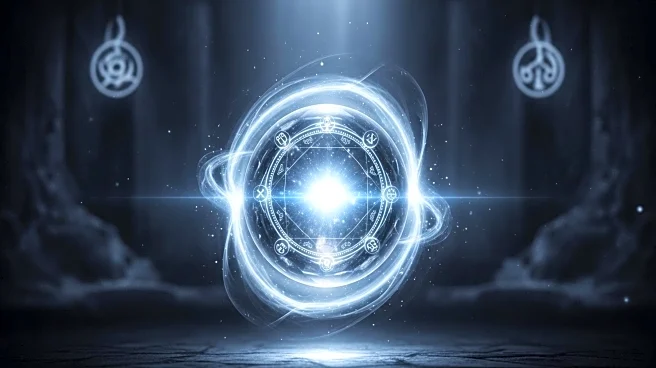What's Happening?
Maggie Kang, co-director of the animated film 'KPop Demon Hunters,' has expressed her belief that the story's future lies in animation rather than live-action adaptations. In an interview with the BBC,
Kang stated that while there are no official plans for a sequel, the potential for further stories within the 'KPop Demon Hunters' universe is significant. The film, produced by Sony Pictures Animation, follows a K-pop girl group using music, dance, and magical powers to combat demons. Despite its success, Kang and co-director Chris Appelhans are firm in their stance against a live-action version, citing the unique attributes of animation that allow for exaggerated and dynamic storytelling.
Why It's Important?
The decision to focus on animation rather than live-action adaptations highlights the creative possibilities inherent in animated storytelling. Animation allows for a blend of humor, action, and fantasy that might be lost in a live-action format. This choice reflects broader industry trends where animation is increasingly recognized for its ability to push creative boundaries. The success of 'KPop Demon Hunters' on platforms like Netflix and Billboard charts underscores the growing influence of animated films in mainstream entertainment. By maintaining the animated format, the creators can continue to explore innovative narratives that resonate with audiences globally.
What's Next?
While no sequel is officially planned, the creators have hinted at the potential for more stories within the 'KPop Demon Hunters' universe. This could lead to further exploration of the characters and their world, potentially expanding the franchise's reach. The film's popularity may encourage Sony Pictures Animation to invest in additional projects that leverage the unique strengths of animation. Fans can anticipate more engaging content that builds on the film's success, possibly including new music releases or interactive experiences that enhance the storytelling.
Beyond the Headlines
The emphasis on animation over live-action adaptations raises questions about the future of storytelling in the entertainment industry. As technology advances, animation offers a platform for creators to experiment with visual and narrative techniques that challenge traditional formats. This decision also reflects cultural shifts, where animated films are increasingly seen as legitimate art forms capable of addressing complex themes. The creators' commitment to animation may inspire other filmmakers to explore similar paths, potentially leading to a renaissance in animated storytelling.








